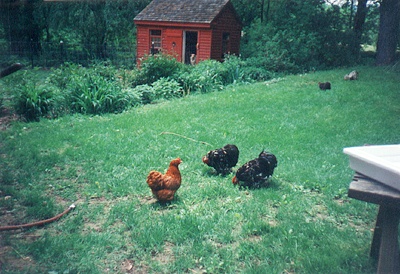All Nonfiction
- Bullying
- Books
- Academic
- Author Interviews
- Celebrity interviews
- College Articles
- College Essays
- Educator of the Year
- Heroes
- Interviews
- Memoir
- Personal Experience
- Sports
- Travel & Culture
All Opinions
- Bullying
- Current Events / Politics
- Discrimination
- Drugs / Alcohol / Smoking
- Entertainment / Celebrities
- Environment
- Love / Relationships
- Movies / Music / TV
- Pop Culture / Trends
- School / College
- Social Issues / Civics
- Spirituality / Religion
- Sports / Hobbies
All Hot Topics
- Bullying
- Community Service
- Environment
- Health
- Letters to the Editor
- Pride & Prejudice
- What Matters
- Back
Summer Guide
- Program Links
- Program Reviews
- Back
College Guide
- College Links
- College Reviews
- College Essays
- College Articles
- Back
The Views of Your Average Teenage Girl Carnivore - and My Rebuttals
In my opinion, no matter how passionately you believe in something, it’s important to understand the views, reasons and opinions of the “opposing side.” In order to gain insight and understanding from a meat-eater’s point of view, I interviewed a group of teenage girls and asked them several important questions. And here, I will respond to their arguments.
When I asked these girls why they ate meat, their main reason was actually health-related – it was in order to obtain protein and iron. However, every whole plant food contains some protein, and plant foods that are particularly loaded with protein include soybeans (including tofu, fake meat, soy milk, and soy yogurt), lentils, beans, nuts, seeds, pumpkins, seaweed, peas, wasabi, tempeh and whole grains. Plant sources of iron also include soybeans, molasses, lentils, spinach, tofu, tempeh, beans, Swiss chard, potatoes, dark green leafy vegetables and certain whole grains. One girl mentioned that a doctor had told her that meat was healthy in moderation. That doctor should know that this, according to research about extremely high toxin levels in animal products, may or may not be true. Yet another girl asserted that meat satisfies hunger, a result of meat’s high protein and fat content. These can both be obtained easily from plant foods, which contain the satiating fiber and healthy, unsaturated fats that animal products do not.
When asked if they found animal slaughter to be disturbing, the girls all responded that they did find it very gruesome. One girl responded that she was bothered by animal slaughter, but that “humans are selfish.” I would argue that just because humans intrinsically possess traits, such as gluttony, jealousy, and sadism, does that mean that we shouldn’t try to change for the better? Another girl responded that she did find animal slaughter to be horrific, but that it has been happening since the beginning of time. I would respond that women have also been abused and people have been enslaved since the beginning of time; does that make it right?
When the girls were asked if they were alarmed by the devastating effects of factory farming on the environment, their responses were mixed. Several girls responded that they never knew that there were any, which illustrates the problem of common ignorance. Another girl genuinely said she wished that meat processors could find ways to produce meat with less taxing effects on the environment. However, at the rate that we are producing meat and dairy, there really is no way to raise billions of livestock in a “green” way.
One girl responded that there were many other ways to cut down on carbon dioxide emissions, but I wonder if that girl would also agree that, for example, a young child shouldn’t receive formal schooling because there are many “other ways” to gain knowledge. Lastly, this girl stated that she is not too concerned about the environmental effects of meat because she believes that these effects won’t change for a long time. (She’s right.) I would argue that, on the contrary, shouldn’t this make the girl more, rather than less, concerned?
When the girls were asked if they believed that vegetarians had the ethical upper hand, responses were even more mixed. One girl responded that vegetarians are morally correct for saving animals’ lives, but she also stated that it is important to recognize that some people eat meat simply for protein. I would argue that this doesn’t change that people are still morally incorrect in this specific way, if for no other reason than there are many plant sources of protein. Another girl responded that she didn’t believe that vegetarians were more ethically-correct, because everyone’s personal decisions and beliefs should be respected. But, I would argue, why should I respect a practice that causes widespread pain and suffering? Yet another girl responded that vegetarians are not morally superior, because refusing to eat meat doesn’t actually directly stop the process of animal slaughter. I would argue that it does, however, hugely lessen the consumer demand for meat, for vegetarians and vegans save around 100 animals a year.
When the girls were asked the main reasons that they wouldn’t become vegetarians, one girl said that if she had the chance to not eat meat, she would do it. I would encourage her that there is always a chance to turn down a piece of steak and ask for something else, and that the time is now. One of the main answers of all the girls was that they lacked the discipline. I would ask these girls why the simple discipline of making one basic change in their diets wouldn’t be worth easing the suffering that burdens so many living beings and the ever-increasing strain on Mother Earth.

Similar Articles
JOIN THE DISCUSSION
This article has 2 comments.
